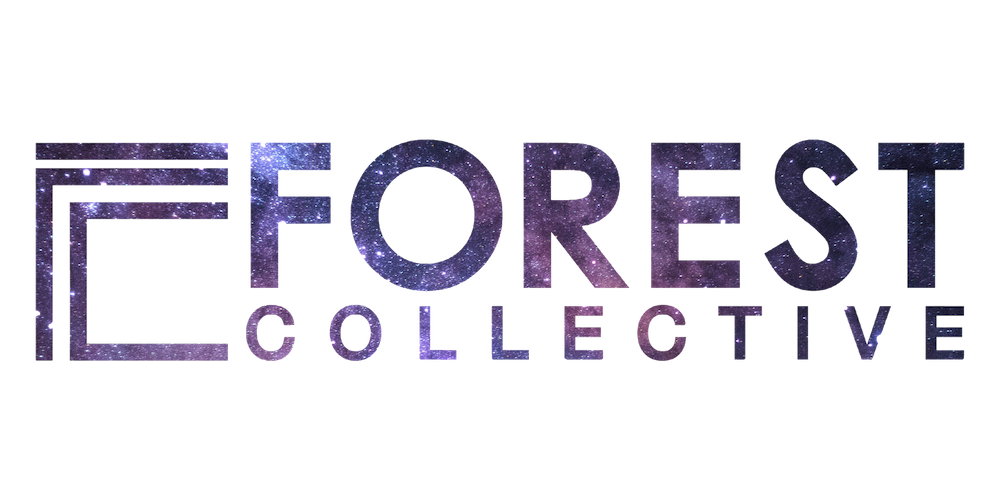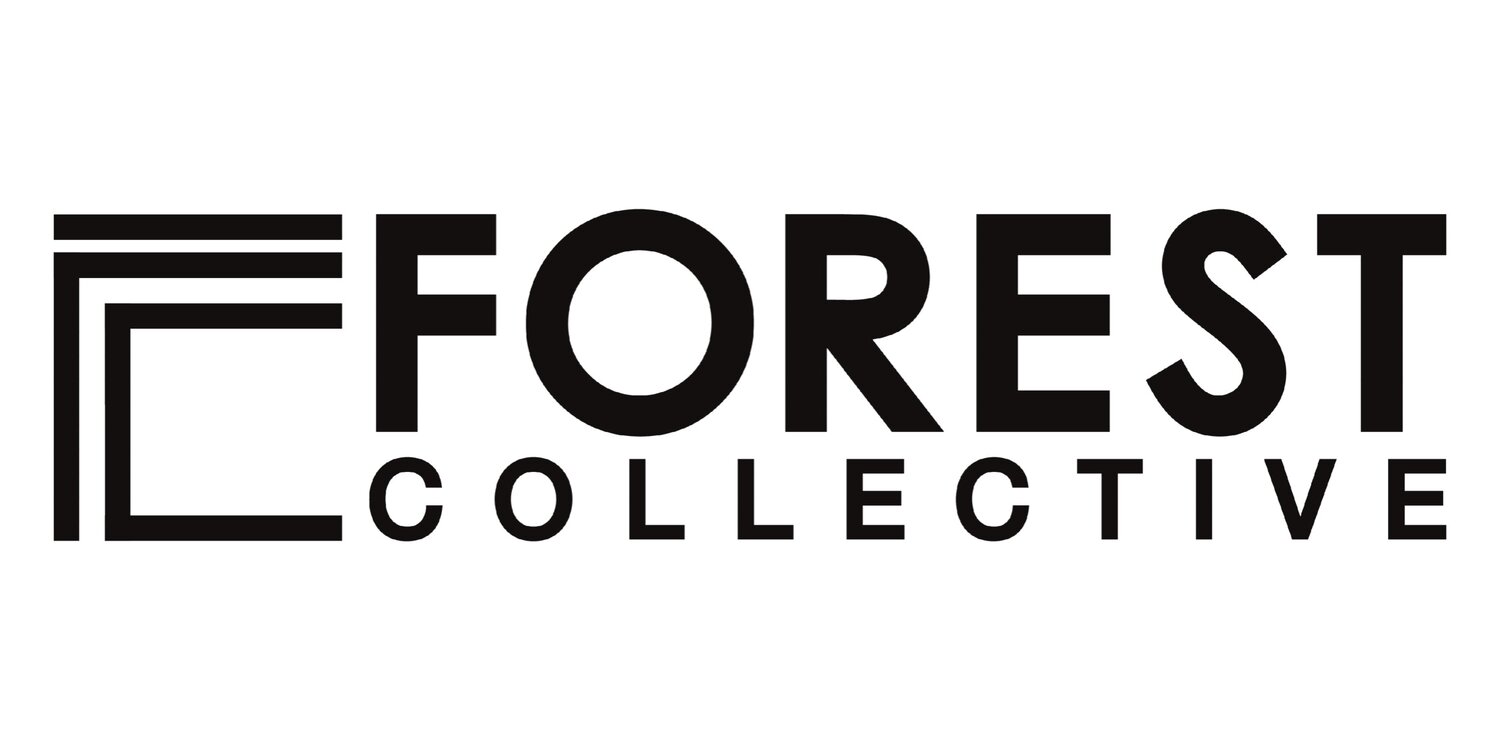Sun Songs & Cycles performance notes
Forest Collective acknowledges the Traditional Custodians of the land on which we live, meet, create, and perform - Wurundjeri land of the Kulin Nation.
We pay our respects to their Elders, past and present, and extend our respects to all Australian Aboriginal and Torres Strait Islander Elders, past and present. We recognise and respect their cultural heritage, beliefs, and relationship with the land. We recognise Australian Aboriginal and Torres Strait Islander peoples as the first inhabitants of this nation.
Instinct by Louisa Trewartha
Meditations by Evan J Lawson World Premiere
Möbius by Howard Dillon
Hymn to the Sun from Akhnaten by Philip Glass World premiere new arrangement by Evan J Lawson
Interval - 20 mins.
Inguz by Liza Lim
Am I in your light? from Doctor Atomic by John Adams
Nocturne by Margaret Sutherland
Cards I've been dealt, Toothbrush & Mosaic by Soda - please note that these songs contain references to suicidal ideation and drug use World Premiere
Maenad: Instructions for an Improvisation after Sylvia Plath’s ‘Poem for a Birthday’ by Danaë Killian, words written by Sylvia Plath
Sun Cycles by Evan J Lawson World Premiere
Last page, final chapter from Pierrot by Soda, featuring Aleise Bright & Helen Bower First live performance (Friday and Saturday evening only)
Instinct - Louisa Trewartha - Horn & Piano
Tell us about your piece Instinct, which we shall hear in Sun Songs & Cycles.
The work takes inspiration from the incredible occurrence that is long-distance bird migration. Having evolved over thousands of years, long-distance bird migration is triggered by a combination of genetic predisposition, food, temperature, and day length. To find their way halfway round the world, birds are thought to use three types of compasses: sun, star, and magnetic. These three elements inform the musical themes in this work.
What inspired you to write this work?
Phoebe Smithies, who commissioned the work was very open to my ideas (thanks Phoebe!) I had heard a few years ago an ABC interview with author Andrew Darby about the grey plover's migration from South Australia to the Arctic Circle and was fascinated by it, so decided to do more research. He's written an interesting book called Flight Lines which is worth checking out.
Meditations - Evan J Lawson - Violin
My new solo piece Meditations is a slow, meditative work that cycles through a few simple musical ideas that play with harmonic tension and release. The meditation idea is explored through this oscillation between tension and release, via the harmonic consonance and disonance. At times the music is settled, calm and relaxed, and at other times distraction and tension creep its way back into the music, much like when you are trying to meditate.
Möbius - Howard Dillon - Piano
Möbius is a moto-perpetuo type piece and forms part of a suite of solo piano works written over the last few years. The form of this work is relatively simple: As the name suggests the piece returns back on itself relentlessly, one could say obsessively to the gestures and structures presented at the beginning but never quiet repeating exactly until final disintegration. Möbius was completed in 2012.
Howard Dillon is a composer, violinist and educator. He has a Masters degree in composition from La Trobe University. His interests in composition extend to electro-acoustic music and sound installations, as well as more traditional instrumental composition. Between 1997 and 2006 he organised the Elbow Room Concert Series highlighting the work of Melbourne composers in non-traditional venues on behalf of the Melbourne Composers' League. His music has been performed by the Astra Music Society, the Melbourne Composers' League, Monash University and as part of the Asian Music Festival in Bangkok and Japan, and at the Meetings of New Music Festival in Rumania. He has had his Sound Installations exhibited at the Linden Gallery in Melbourne and at the National Gallery of Victoria.
Hymn to the Sun - Philip Glass - Voice & Ensemble, from the opera Akhnaten
Akhnaten is an opera in three acts based on the life and religious convictions of the Egyptian pharaoh Akhenaten (Amenhotep IV),[1] written by the American composer Philip Glass in 1983. The libretto is by Philip Glass in association with Shalom Goldman, Robert Israel, Richard Riddell, and Jerome Robbins. According to the composer, this work is the culmination of his two other biographical operas, Einstein on the Beach (about Albert Einstein) and Satyagraha (about Mahatma Gandhi). These three people were all driven by an inner vision which altered the age in which they lived: Akhenaten in religion, Einstein in science, and Gandhi in politics.
The text, taken from original sources, is sung in the original languages, linked together with the commentary of a narrator in a modern language, such as English or German. Egyptian texts of the period are taken from a poem of Akhenaten himself, from the Book of the Dead, and from extracts of decrees and letters from the Amarna Period, the seventeen-year period of Akhenaten's rule. Other portions are in Akkadian and Biblical Hebrew. Akhnaten's Hymn to the Sun is sung in the language of the audience.
Thou dost appear beautiful
On the horizon of heaven
Oh, living Aten
He who was the first to live
When thou hast risen on the Eastern Horizon
Thou art fair, great, dazzling,
High above every land
Thy rays encompass the land
To the very end of all thou hast made
Thy rays encompass the land
To the very end of all thou hast made
All the beasts are satisfied with their pasture
Trees and plants are verdant
Birds fly from their nests, wings spread
Flocks skip with their feet
All that fly and alight
Live when thou hast arisen
How manifold is that which thou hast made
Thou sole God
There is no other like thee
Thou didst create the earth
According to thy will
Being alone, everything on earth
Which walks and flies on high
Thy rays nourish the fields
When thou dost rise
They live and thrive for thee
Thou makest the seasons to nourish
All thou hast made
The winter to cool
The heat that they may taste thee
There is no other that knows thee
Save thy son, Akhnaten
For thou hast made him skilled
In thy plans and thy might
Thou dost raise him up for thy son
Who comes forth from thyself
There is no other that knows thee
Save thy son, Akhnaten
For thou hast made him skilled
In thy plans and thy might
Thou dost raise him up for thy son
Who comes forth from thyself
Inguz - Liza Lim - Clarinet & Cello
Programme note by Malcolm Gillies (from The Heart’s Ear CD) for Inguz by Liza Lim:
Inguz (fertility) dates from 1996 and follows the genetic line of earlier works Koto and Street of Crocodiles – in fact, the work draws on an unpublished cello study written in preparation for the latter work. The title refers to the Viking rune symbolising fertility, which is associated with “the moon, intuition and the desire for harmonisation in personal relationships”. Inguz is dedicated to the clarinettist Catherine McCorkhill and cellist Chris Lockhart Smith on the occasion of the birth of their daughter Arianne.
Inguz is an intimate study of cello and clarinet sonorities. It explores these instruments’ conforming and contrasting features amid a narrative of alternating mobility and stasis, the product of the passing congruences and divergences of pitch and rhythm. On some occasions the instruments’ timbres are virtually indistinguishable, the one growing out of or intermingling with the other; on others, the contrasts of timbre and register are extreme. Lim conceives of the work as being like the alap of an Indian raga, in which the music functions to tune the instruments and to establish a mood.
Premiere: 25 November 1996, Bremen, Bremer Podium Concert: Liza Lim Portrait, Carl Rosman, clarinet, Rosanne Hunt, violoncello
Am I in your light? - John Adams - Voice & Piano, from the opera Dr. Atomic
Doctor Atomic is an opera by the contemporary American composer John Adams, with libretto by Peter Sellars. It premiered at the San Francisco Opera on October 1, 2005. The work focuses on how leading figures at Los Alamos dealt with the great stress and anxiety of preparing for the test of the first atomic bomb (the "Trinity" test).
Am I in your light?
No, go on reading
(the hackneyed light of evening
quarreling with the bulbs;
the book's bent rectangle
solid on your knees)
only my fingers in your hair,
only, my eyes
splitting the skull
to tickle your brain with love
in a slow caress blurring the mind,
kissing your mouth awake
opening the body's mouth
stopping the words.
This light is thick with birds, and
evening warns us beautifully of death.
Slowly I bend over you,
slowly your breath
runs rhythms through my blood
as if I said I love you
and you should raise your head.
listening, speaking
into the covert night:
Did someone say something?
Love, am I in your light? Am I?
See how love alters the living face
go spin the immortal coin through time
watch the thing flip through space tick, tick
Maenad: Structured Musical Improvisation after Sylvia Plath’s ‘Poem for a Birthday’ - Danaë Killian, words written by Sylvia Plath
Sylvia Plath (October 27, 1932 – February 11, 1963) was an American poet, novelist, and short story writer. She is credited with advancing the genre of confessional poetry and is best known for two of her published collections, The Colossus and Other Poems (1960) and Ariel (1965), as well as The Bell Jar, a semi-autobiographical novel published shortly before her death in 1963. The Collected Poems were published in 1981, which included previously unpublished works. For this collection Plath was awarded a Pulitzer Prize in Poetry in 1982, making her the fourth to receive this honour posthumously.
Maenad is an aleatoric musical composition, written in the form of instructions for an improvisation. It imaginatively follows the trajectory of Sylvia Plath’s seven-part “Poem for a Birthday” (1959), which, in its mystical density and complexity, prefigures the narrative of alchemical self-transformation that propels the later, more famous Ariel. Maenad is composed in seven episodes, each of which is named, in sequence, after one of the parts of Plath’s “Poem for a Birthday,” and each of which seeks freely to unknot and unravel one or more element in Plath’s extraordinarily rich weave of imagery and associative meaning. The title of the improvisation as a whole—Maenad—takes its name from the third poem in Plath’s sequence, which the female speaker is instructed to declaim in its entirety. Maenad was conceived in 2019 with the members of Forest Collective in mind and revised in 2020.
Sun Cycles - Evan J Lawson - concerto grosso for solo piano, solo harp, solo vibraphone and ensemble.
In this new concerto grosso I depict the movement of the sun in 3 movements - the first is a birght and brash sunset, the second a dark and brooding night music and the third an even brighter and almost violent light of a sun rise, including a dawn chorus of birds.
In addition to the 3 ‘keyboard’ solo instruments, the work also includes extended solos for electric violin and horn.

